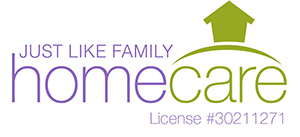There’s a nagging cliché about life coming around full circle. But, never does it seem more real than when one of our parents starts to visibly age and requires assistance for otherwise-normal activities.
Yet, even as our parents start to age, the rigors of a full-time job don’t seem to dissipate. So, what happens when you want to be there for Mom and Dad, but you still need to draw in a paycheck?
Well, this is where a live-in caregiver steps onto the scene. Whether a caregiver comes to tend to your loved one’s daily affairs while you’re at work or moves in on a more permanent basis to oversee things, they offer tremendous reassurance that everything’s going to be alright.
Below, we’ll break down the details of what, precisely a live-in care provider offers. There are a rainbow of options, depending on your loved one’s needs. And, no matter which direction you take, comfort lies at the core of it all.
Comfort Giver
The first (and perhaps best) way to describe a live-in care provider is a comfort giver. Their presence offers a certain level of comfort for friends and family members who are concerned about the well-being of an elderly loved one.
No longer do sons and daughters have to worry that their elderly parents may have slipped or fallen. No longer do they have to send up a flare if a phone call isn’t answered. It’s established that someone’s close at hand and caring for their every need.
Live-in care providers also provide comfort for someone who’s aging, as well. Consider how we spend our lives curating our home. It’s our safe haven, our safe space.
When the trials of aging start to take their toll, it’s far more reassuring to endure life’s difficulties from the comfort of a living room surrounded by family photos or a bedroom that was painted and decorated by their spouse many moons ago.
Live-In Caregiver vs. Daytime Caregiving
Of course, many of us would love to welcome our elderly parents back into our homes and care for them the way they cared for us as children. Yet, often, the demands of life require us to maintain a daytime job. When our hands become tied like this, there are a couple of options.
Live-In Caregiving
Live-in elderly care means your family member will have an in-home caregiver who works four or five days a week, providing ’round the clock care. So, while you’re at work, your loved one will be cared for. Even if you’re working a double shift, there’s no fear; your loved one will be cared for.
In this situation, the live-in senior caregiver must be provided a bed where they can rest for eight hours a night (with, of course, the stipulation that this sleep may be disrupted by the needs of their client). They’re also given a period of rest during the day where another caregiver can come in or a family member can take over.
Daytime Caregiving
If you’re able to move an elderly loved one into your home, but can’t be around all day, this may be a lovely option for you. A daytime caregiver will arrive to oversee the health and safety of your loved one while you’re at the office.
Typically, when you come home, you’re “on duty” to care for your loved one. But, what’s nice is that the same daytime caregiver can sometimes step in to help with the occasional evening affair. And, of course, if you work an evening shift, then you will be able to find someone who’s available for overnight caregiving until you come home again in the morning.
24-Hour Caregiving
Twenty-four-hour caregiving may sound a bit like live-in elder care. But, it’s actually more intensive. This is for someone who can’t be left unsupervised (i.e., during an eight hour period of rest). Perhaps they’re prone to falls or need constant medical attention.
In which case, 24-hour caregiving is provided by two or three caregivers who work in shifts. There won’t be an eight-hour sleep break or a daytime break. Rather, someone would be “on guard” at all times, providing the utmost care for your aging family member.
Types of Care Providers
Aside from live-in vs. daytime (or nighttime) providers, there are also varying levels of training that you can consider when looking for the perfect match. Here’s a breakdown of some of your best options:
Licensed Practical Nurses & Registered Nurses
A licensed nurse can provide skilled care for a number of situations. They may come in hourly shifts, or more frequently, to administer medication, provide post-surgery care, tend to wounds, provide ventilation care, or monitor vitals.
This is, of course, for someone who needs diligent medical attention or someone who may be recovering from a difficult surgery. Having a registered nurse enter a home is a wonderful way to know your loved one is being cared for by a trusted member of the medical community.
Certified Nursing Assistant
Of course, another member of the medical community that’s not to be overlooked is a nursing assistant or home health aide. These are friendly folks who can assist with everyday activities like bathing, dressing, oral hygiene, shaving, skin care, ambulating/transfer, transport/escort, toileting, supervision, reminder medication, prepare meals/feeding, laundry/change linens and light housekeeping.
A home health aide may fall nicely into the category of daytime care listed above. This is someone who can oversee your loved one’s daily routine, from breakfast to afternoon bridge with their friends, to an early supper before a member of the family arrives home for the evening.
Companion
Another alternative is a companion. This is for someone who’s just looking for a bit of companionship rather than “hands-on care.” Perhaps a companion will drive Mom or Dad to the local movie theatre to catch the latest Tom Cruise film.
Or, maybe they’ll stay at home and enjoy a couple episodes of Grey’s Anatomy while playing a robust game of gin rummy. This is someone who’s going to keep your loved one’s mental health in tip-top shape and also help ward off any feelings of cabin fever.
Does Insurance Cover a Caregiver?
Thankfully, most long-term care insurance will cover the services provided by a registered caregiver. Of course, that’s not to say that what’s covered doesn’t vary from policy to policy.
If you work with the right referral agency, they can not only pair you with the perfect caregiver out there, but they can also help you master the game of ping pong that comes with a phone call to the insurance company.
For example, the team here at Just Like Family loves to assist our clients as they navigate the nitty-gritty of an insurance policy. We also provide the documentation necessary to start your policy benefits and keep them going.
Start the Process for a Live-In Caregiver Today
Do you feel the weight lifting off your shoulders as you consider the multi-faceted nature of a live-in caregiver? Whether it’s preparing tea, doling out medication, or helping a loved one move around safely, there’s a lot to be gained by entrusting the supervision of a loved one to a caregiver.
Here at Just Life Family Home Care, we offer the support your loved ones need by referring qualified home health care caregivers to come to their home and live the most independent life possible. Our mission is to provide tailor-made solutions to each family’s needs. Whether you’re looking for a Registered Nurse or a Home Health Aide, we can connect you with someone truly special.
Give us a call today to schedule a free consultation with a representative. Together, we’ll shape out a plan of action that will ensure the health, safety, and comfort of your loved one. Wouldn’t it be nice if we all slept in peace again, starting tonight?

